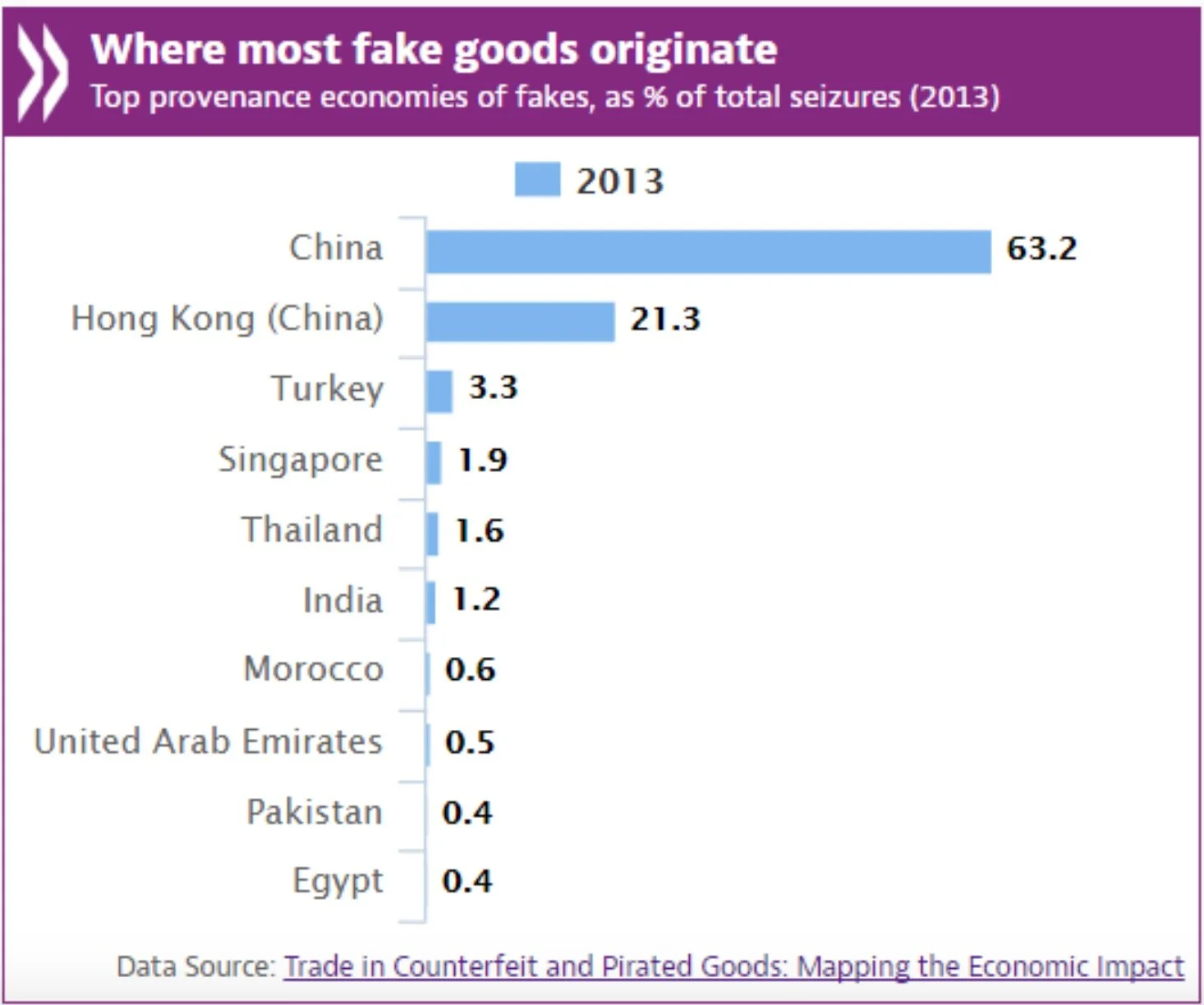Counterfeits: The Battle of Wits
Aug 3, 2018 | Written by Brooke Massicotte | 3 min read
Last week, Nike Inc. won a case that was filed against several shipping companies that unlawfully transported thousands of counterfeit Nike shoes overseas to the U.S. Ten shipments of approximately 20,000 Nike ® shoes worth more than $650,000.00, were transported to the U.S., intending to go to Saint-Gobain Corp (a French importer).
Two of the ten shipments containing the counterfeit products from China, were seized by U.S. Customs. In addition to finding for the Plaintiff and ordering the Defendants to pay $240,000.00 in damages, the court held that it was irrelevant whether the Defendants knew that the products were counterfeit -- they were still responsible under the Lanham Act, governing trademarks. Click here to view the court's decision.
This was a solid win for Nike, and a good example of what taking action against counterfeiters looks like. That brings me to this week’s topic: Protecting your company and its brand from other’s unethical business practices. Nowadays, we must take diligent action in protecting our brands from counterfeit counterparts. According to the Merriam Webster’s Dictionary, the act of counterfeiting means to “imitate fraudulently”. Billions of dollars of counterfeited products are outsourced from all over the globe every year, Nike is one of the most counterfeited companies in the world, with most of the offenders coming from China. As you can see from Figure 1 (source: Economist.com), China dominates when it comes to the counterfeit market and amount of seized goods throughout the globe, followed by
Turkey, Singapore and Thailand. Compared to the total number of seized goods, China accounts for 63.2% of all of it. That is a lot! This is mostly attributable to the low cost of labor and it being home-base for most companies manufacturers, including Nike.
What steps can you take, as a business owner or entity, in order to protect yourself against these counterfeit product suppliers? Here are some suggestions:
Register your trademark in China or any countries where major counterfeit products come from (ie, Hong Kong, Turkey, Singapore).
Find a good lawyer that will protect your intellectual property.
Consider outputting frequent updated models of your product. This makes it harder for counterfeit companies to recreate your product as fast as you can.
Open an avenue in your online store that allows payment in different currencies, other than the U.S. dollar. This step depends on how “big” your company is. Major corporations like Nike should consider this but “mom and pop” local businesses or any other small business may not need to.
If shipping out products, invest in technology such as QR codes or Radio-frequency Identification tags in order to track where the products go between the time they leave the factory and when they reach the consumer.
Educate your customers on certain tax stamps, QR codes, holographic tags and labels that are unique to your manufacturer. This way, you’ll be able to say “If it doesn’t have A or B, it is fake”
Counterfeit products are far from a new dilemma. With this being said though, it is not an impossible problem to combat; just very tough! These steps are so important to your companies success as trademarks and other intellectual property related to your business are what makes your company unique. A familiar brand makes it easier for potential customers to recognize your products. When the market is crowded with numerous other brands that do what you do, sometimes it is hard to distinguish between them as a consumer. Trademarked logos and phrases are what sets you apart! Creating a unique identity for your brand will protect your hard work from being stolen. We wouldn’t want anyone else to profit from your exclusive ideas!
If you are looking for an attorney to protect your trademarks and intellectual property alike, please contact us here!
#attorney #bostonlawyer #blackattorney #womenattorneys #blackwomenattorneys #trademark #brand #contracts #entrepreneur #startup #blackownedbusiness #IP #Intellectualproperty #trademarklaw #BostonBlog #ChristinaSimpsonlaw #contracts #businesslaw #Chinacounterfits #NikeLawsuit

